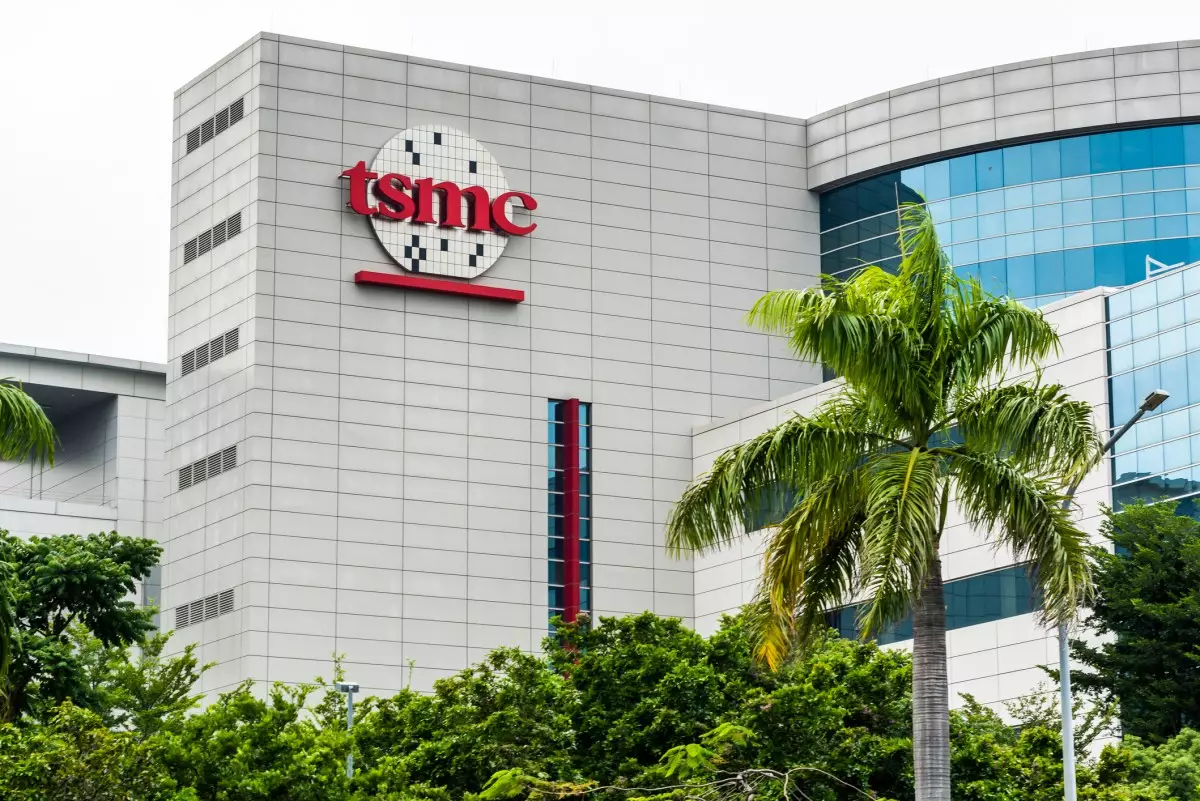Taiwan Semiconductor Manufacturing Company (TSMC), a leading force in global semiconductor production, has announced a monumental investment strategy aimed at invigorating the U.S. chip manufacturing landscape. With a commitment to invest at least $100 billion over the next four years, TSMC’s plans underscore a decisive shift in its operational focus. The announcement made by former President Donald Trump highlights the significance of this financial commitment in the broader context of U.S. efforts to bolster domestic semiconductor production, especially in an era increasingly defined by technological advancements such as artificial intelligence (AI).
The Strategic Importance of the Investment
TSMC’s decision to invest extensively in the United States is not merely a business maneuver but a response to growing geopolitical pressures. The U.S. government has long voiced concerns over the concentration of semiconductor manufacturing in Taiwan, especially given the rising tensions with China. This investment from TSMC signals a proactive approach to mitigating risks associated with over-reliance on foreign production facilities. By aiming to establish a presence with multiple new facilities in Arizona, TSMC is not only diversifying its manufacturing footprint but also addressing national security concerns that have emerged in the tech industry.
Moreover, the substantial influx of capital is set to enhance TSMC’s capacity to manufacture advanced AI chips. C.C. Wei, the company’s chairman and CEO, emphasized during the announcement that these chips would support the ongoing progress within the AI sector, showcasing how intertwined semiconductor production has become with the evolution of emerging technologies.
TSMC’s commitment can also be viewed through the lens of federal initiatives aimed at revitalizing domestic manufacturing capabilities. The U.S. CHIPS Act—a legislative effort designed to encourage semiconductor production within U.S. borders—has played a vital role in facilitating such large-scale investments. TSMC has already benefited from financial grants worth approximately $6.6 billion through this act, which serves as a cornerstone for its expansion plans. With the new investment pledge, TSMC’s total stake in the U.S. semiconductor industry now approaches an impressive $165 billion.
However, it is vital to recognize the potential implications of such large-scale investments on existing tariffs and regulations. Experts like Daniel Newman, CEO of the Futurum Group, warn that TSMC’s investment may hinge on a delicate balance, where it could serve as both a boon for U.S. manufacturing and a tool to negotiate favorable trade terms.
Market Dynamics and Industry Implications
The growth in TSMC’s U.S. operations echoes wider trends within the semiconductor industry, where demand for advanced chip technology is surging due to the AI boom. Companies like TSMC are strategically positioned to capitalize on this trend, given their expertise in advanced chip packaging and manufacturing. However, the firm’s historical reliance on Taiwanese facilities for sophisticated chip production raises questions about its ability to fully transfer capabilities to the U.S. immediately.
In addition, the push from the U.S. government for companies like TSMC to consider acquiring and managing Intel’s troubled plants reflects a broader urgency to reverse years of outsourcing in the semiconductor sector. As the U.S. seeks to regain its footing in chip production, partnerships with established manufacturers could play a pivotal role in re-establishing a competitive edge.
While TSMC’s investment is set against a backdrop of growing calls for domestic manufacturing, it is essential to consider the economic ramifications of such moves. The implications for the workforce, regional economies, and technological innovation will resonate for years to come. Notably, previous announcements by tech giants regarding massive investments in U.S. infrastructure have often lacked detailed plans, raising skepticism around feasibility.
As TSMC makes strides to secure its position in the American market, the ultimate success of its investment strategy will depend not only on its financial backing but also on coherent federal policies that encourage the growth and sustainability of the semiconductor industry.
TSMC’s ambitious investment plan represents a pivotal moment in the landscape of U.S. chip manufacturing. As the semiconductor industry braces itself for a new era driven by AI and other technological advancements, TSMC’s commitment offers a glimpse of the potential to reshape production capabilities on American soil. However, the challenges ahead will require more than financial resources; they will demand thoughtful collaboration between industry leaders and government entities to ensure a successful transition toward a more resilient semiconductor ecosystem. As the pieces slowly fall into place, only time will tell if this investment is indeed the catalyst needed for a manufacturing renaissance in the U.S.

